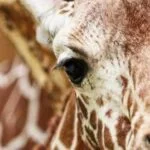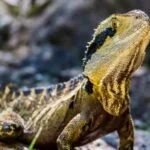Exploring animal welfare potential with The Zoological Lighting Institute
UK animal welfare charity Wild Welfare is exploring the potential for advancing animal welfare for captive wild animals with expertise from a specialist zoo lighting organisation.
Liaising with the US charity The Zoological Lighting Institute™ (ZLI), Wild Welfare is looking at the ways in which animal care and welfare conditions for animals living in facilities such as wildlife centres and zoos, might be improved by considering the effects of artificial lighting.
The use of artificial lighting, absence of natural lighting and re-creation of specific types of lighting for particular species of wild animal living in captive facilities, can all work to help or hinder that animal’s welfare.
Wild Welfare’s acting UK director, Simon Marsh, said: “The team at ZLI are passionate about animal welfare and how lighting for animals can have a hugely positive effect.
“We would like to look at the new ways in which our welfare assessments can incorporate a thorough assessment of lighting, so we can work with captive facilities to suggest changes and improvements in this area where necessary, which will in turn have a positive outcome for the animals.”
Wild Welfare’s work in more than ten countries around the world includes carrying out animal welfare assessments in facilities such as zoos, aquariums and wildlife sanctuaries, and using the findings to suggest ways facilities can make care and welfare improvements for their animals.
With effects that span the Five Domains of animal welfare; nutrition, health, environment, behaviour and mental wellbeing, inappropriate lighting can hinder good animal welfare, so better encompassing it as part of a welfare assessment could be key to advancing welfare for wild animals living in captive environments.
ZLI founder Dr. James Karl Fischer PhD, said: “Although the importance of natural light for biological and ecological function is widely accepted and understood within the scientific community, the science hasn’t been acted upon adequately.
“This means that animals, whether in a zoo setting or in the wild, are subjected to conditions that reduce or deny their opportunity to live and live to the fullest, in the manners in which they evolved. Essentially, the restrictions that artificial light imposes on animals need to be accounted for. This means scientifically monitoring light regularly, and including such data in decisions related to care, conservation and development.
“We are thrilled to partner with Wild Welfare, a seminal leader in captive wild animal welfare initiatives, as care for animals comes first in deciding how to use the facts that science presents for the benefit of all.”
Wild Welfare and ZLI hope that by working together on the subject of lighting and its practical application for animal welfare, they can raise awareness, understanding, funding, and action regarding the importance of light-based welfare monitoring and research in captive facilities around the world.
~ENDS~
Notes to Editors
For more information or interview requests please contact Wild Welfare on communications@wildwelfare.org.
Wild Welfare is a global organisation committed to improving animal welfare for captive wild animals. By uniting the world’s leading zoos, zoo associations and animal welfare organisations, we build trusting partnerships that help provide long-term solutions to critical wild animal welfare issues.
Our vision is to end the suffering of captive wild animals around the world and ensure full and sustainable protection is given to all animals in human care. Find out more at wildwelfare.org. Registered charity in England and Wales No.1165941.
The Zoological Lighting Institute is a unique charitable 501 c(3) with a mission to ‘Support the Sciences of Light and Life through the Arts for Animal Welfare and Wildlife Conservation,’ The Zoological Lighting Institute embraces the concept of ‘Photo Diversity,’ referring to the importance that the diversity of natural light holds for living things, as well as the importance of cultural, social and human diversity has for science and its application. With an international Board of Directors overseeing four departments, including Film & Media, Education, Sustainable Design and the Photosciences, The Zoological Lighting Institute is breaking new terrain in the application of science to address the under-appreciated realm of light and life. Current Campaigns include Beached, Bearanoia, Insect Apocalypse, Otohime’s Time, Precious Light and Save a Billion Birds! Please visit zoolighting.org for more information on Sponsorships, Donor Advisory Fund (DAF) Giving Opportunities and Matching Contribution Programs.
Image © Wild Welfare: A lizard basks in the sun (correct lighting is key to good reptile health and welfare)





